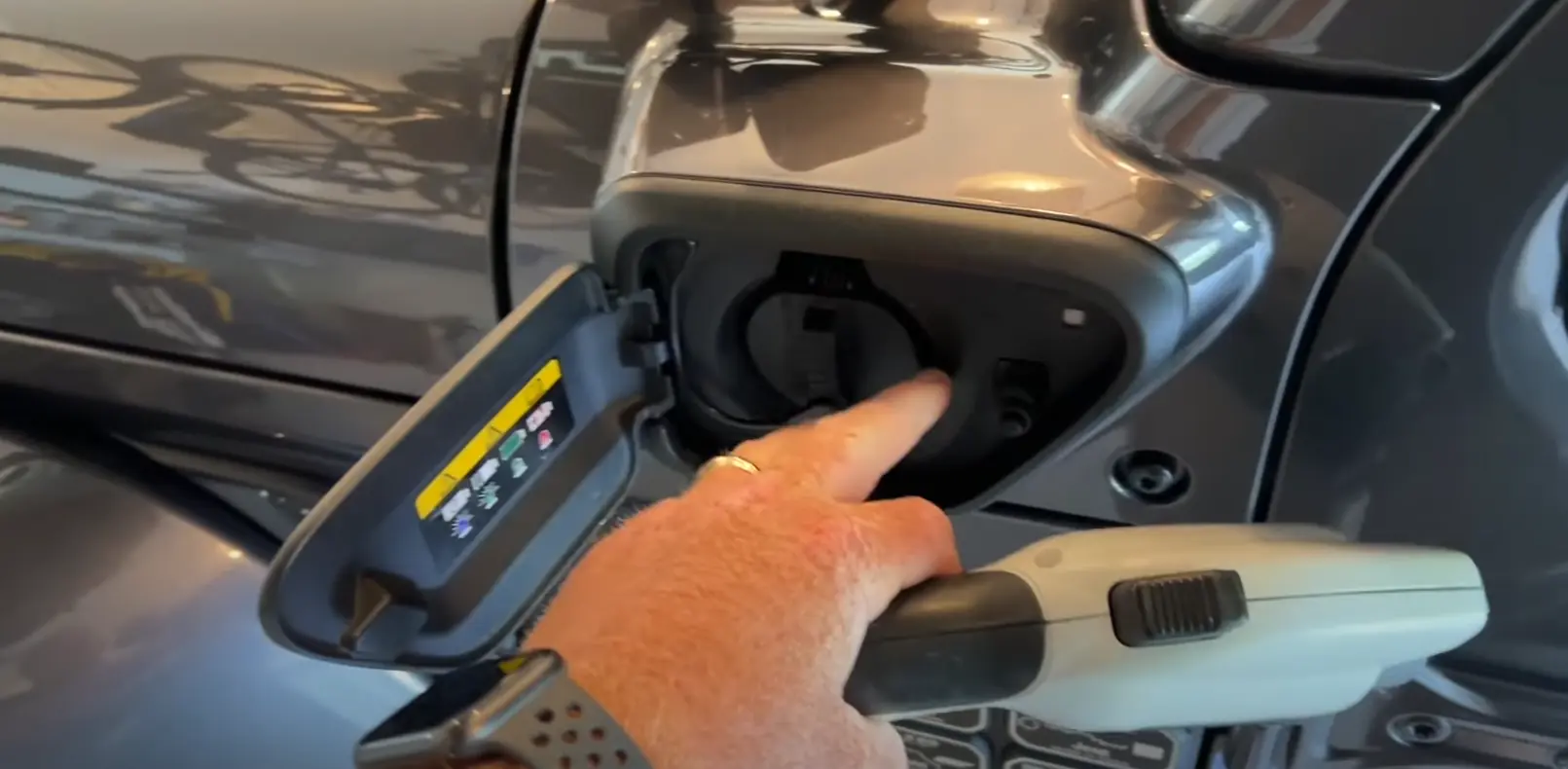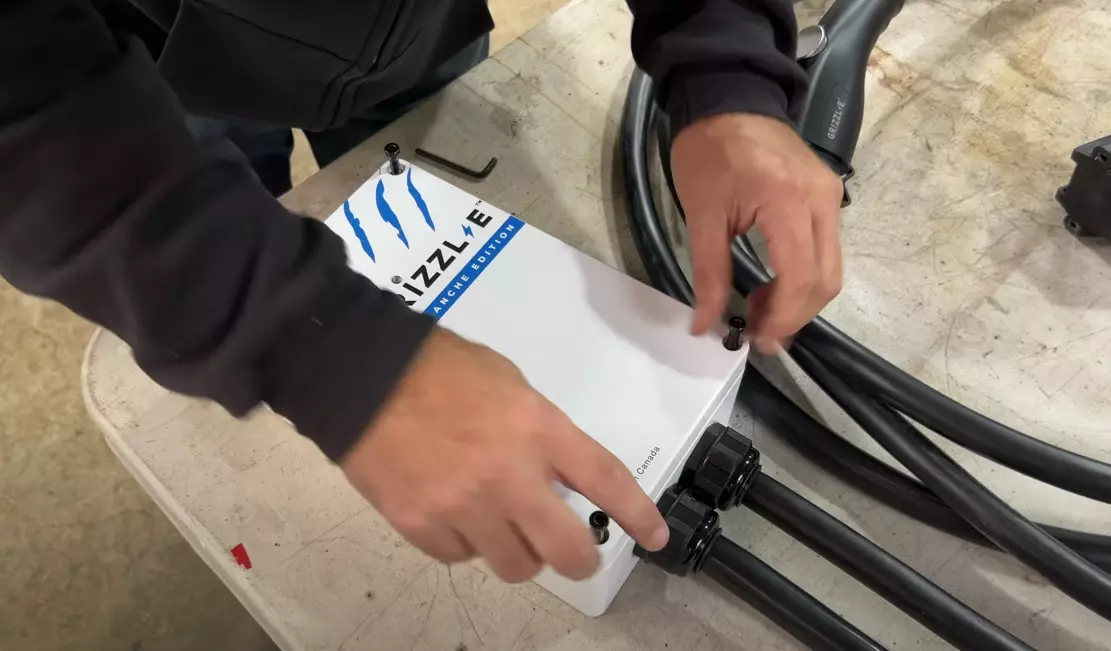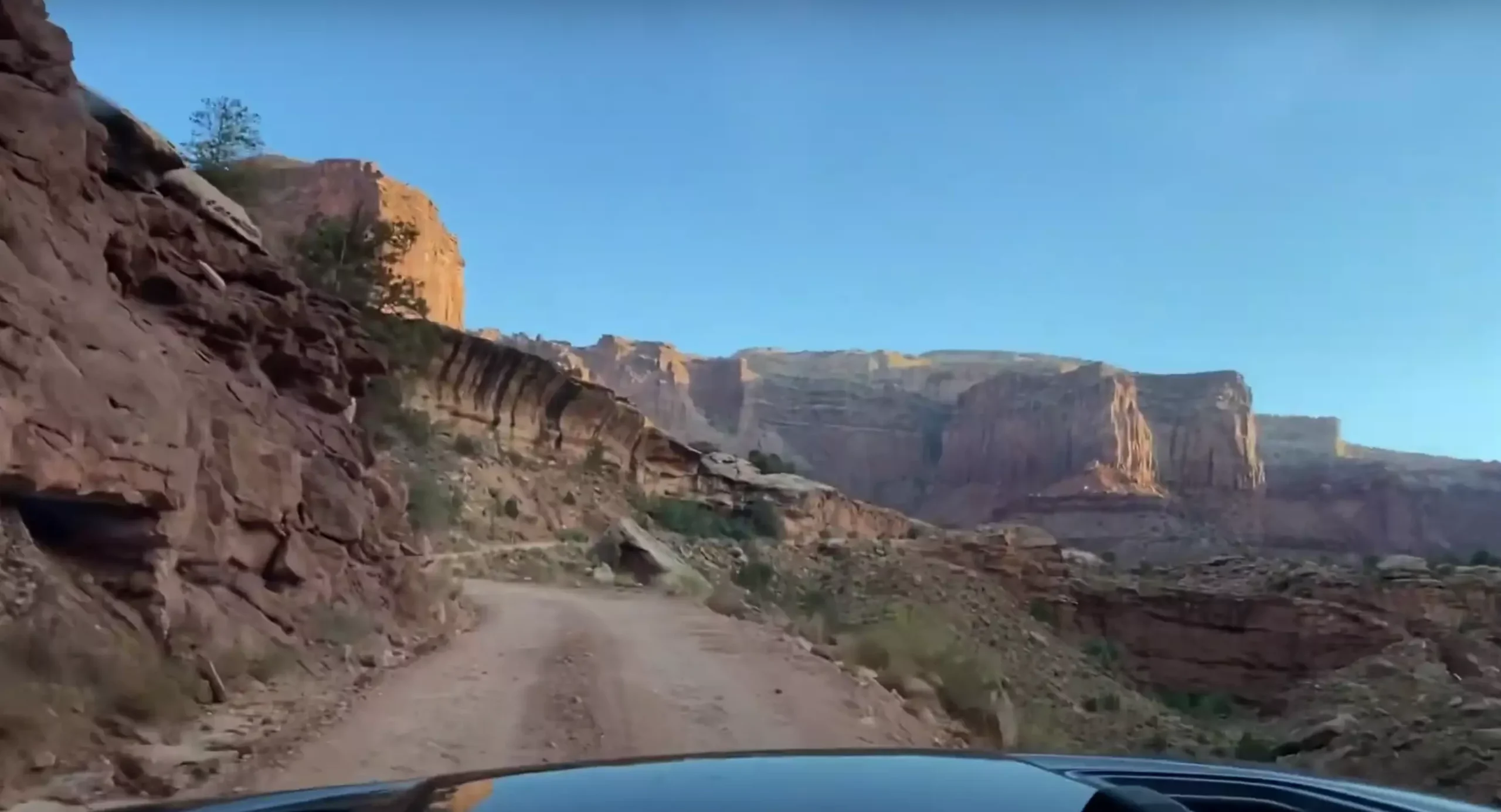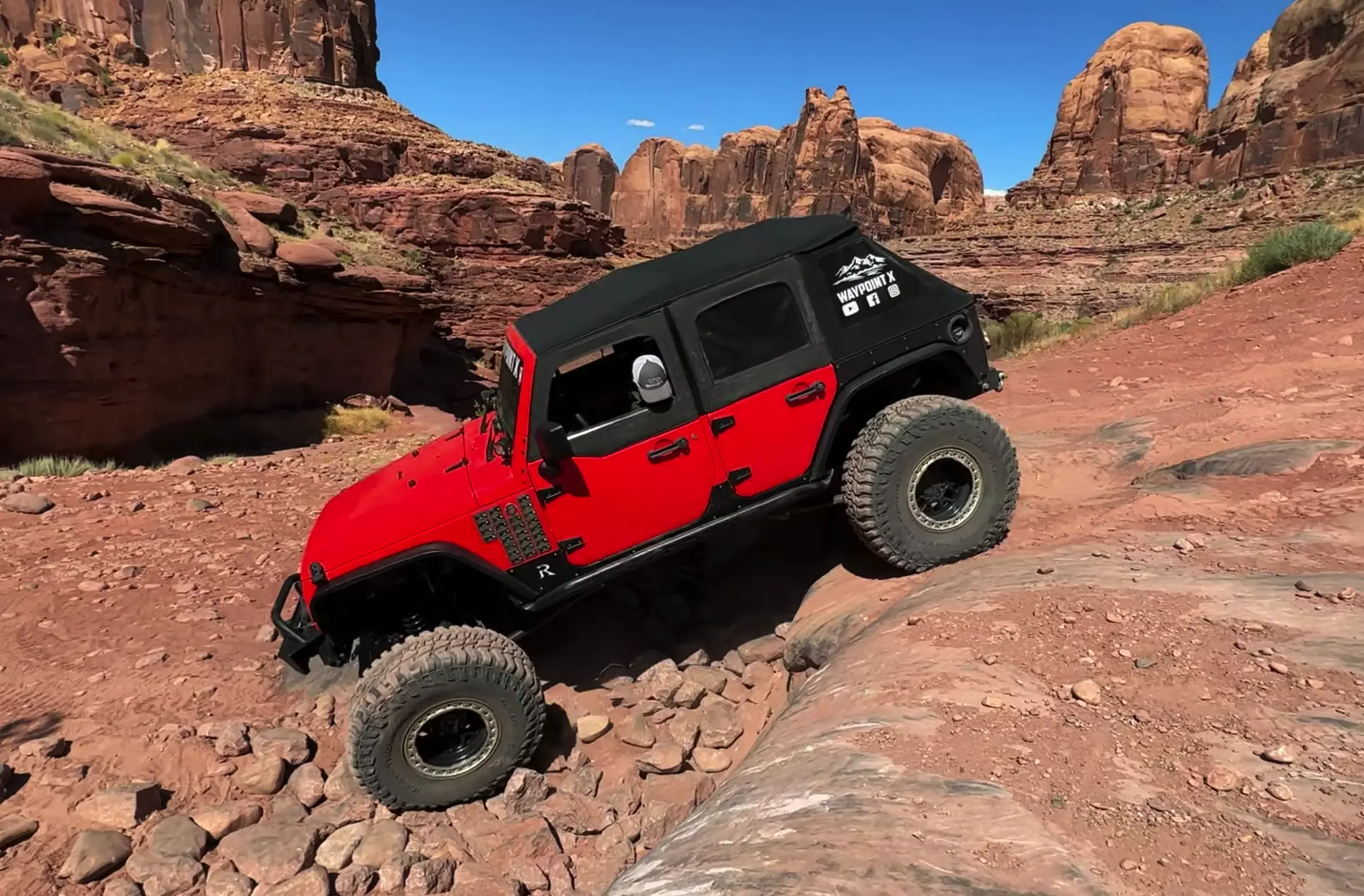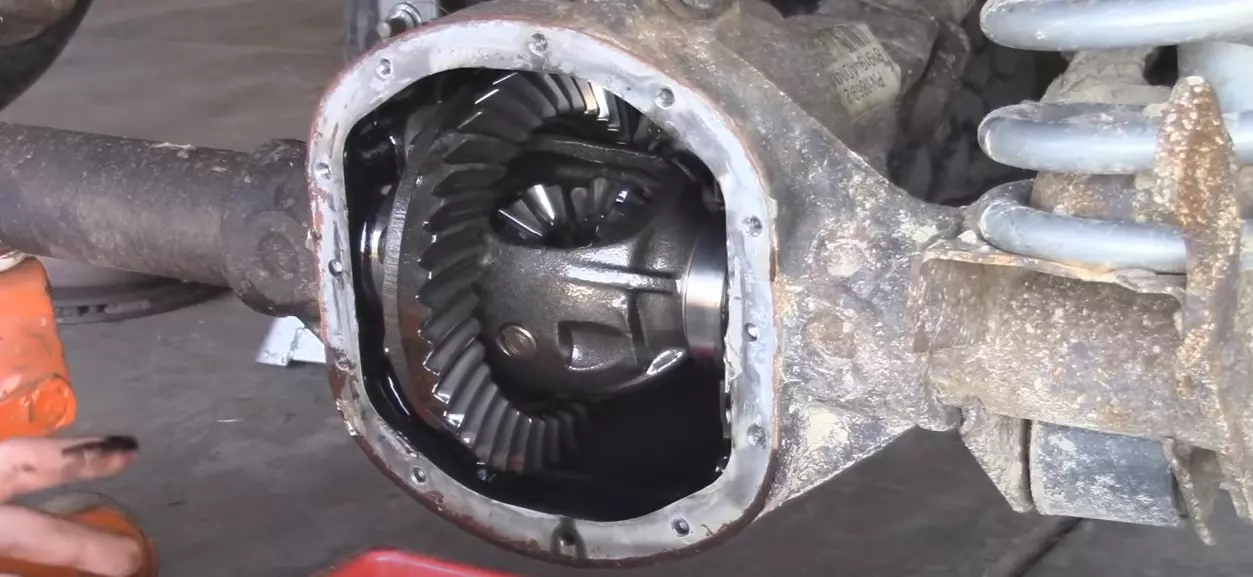
This is an informational post explaining what are Jeep lockers, the types of diffs, and the types of diff lockers you can add to your Jeep differential to force you’re your wheels to spin at the same speed, regardless of traction.
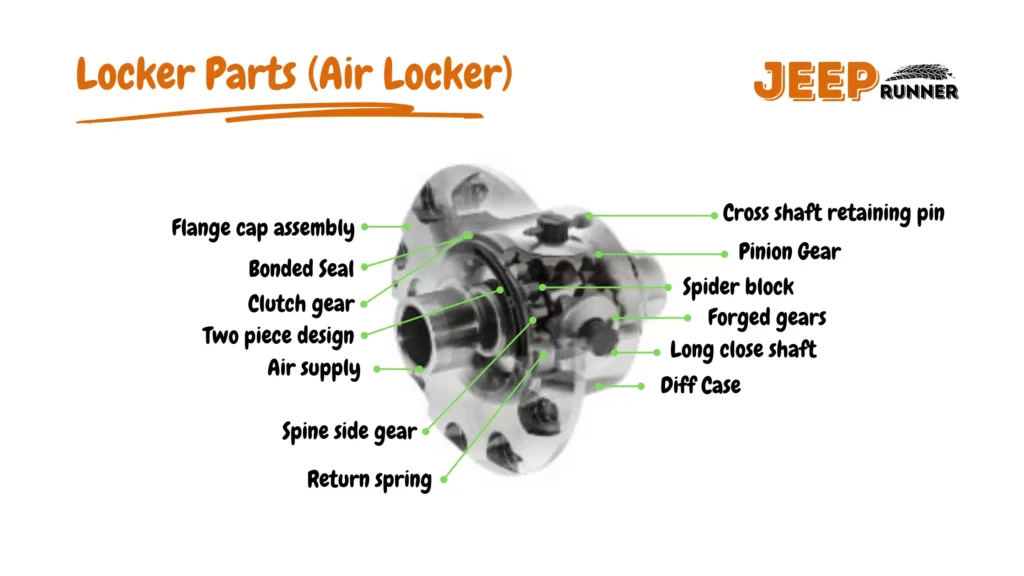
Most Jeep Wranglers have Open differentials, but off-roaders prefer adding front and rear lockers to their off-roading Jeeps to enhance the performance of their Jeep when off-roading with their Jeeps, front and rear Jeep lockers are helpful if you encounter difficult terrain and one or more wheels leave the ground, the other wheels will still have power and traction that ensure you are still moving in the direction you wanted.
Don’t get left behind: Learn more about your Jeep Differential on our Understanding Jeep Differential Guides.
However, front lockers are difficult when it comes to handling your Jeep, most off-roaders prefer having only rear lockers and shun front lockers because they cause what we call “understeer” if you don’t know how to handle the locker, understeer with lockers will happen if you don’t disengage the front lockers when cornering and the Jeep doesn’t steer as much as you wanted and at times plows straight on.
So, what are Jeep Lockers?
Jeep lockers are axle upgrades that lock the left and right wheels together so that they can spin at the same speed with an equal amount of torque regardless of the conditions subjected to them.

Your Jeep has an open differential or what we call a conventional differential, that automatically sends the engine power to the wheel with the least amount of traction, and this will get you stuck in most situations when you need traction as explained by motor authority on how traction control and differentials work. If you are off-roading on steep hills, or rock crawling with your Jeep, a locker is what you exactly need.
Now that you understand what are Jeep lockers, and how they work you might want to install them in your Jeep but don’t know which axle locker is the best, there are many types of Jeep axle lockers and they all serve the same purpose, but each one of them has its ups and downs, and we will help explain types of lockers available when customizing your Jeep differential.
Tip: We recommend using front lockers when you need more traction than steering at that moment.
Different types of Jeep Diffs Explained (100-150)
We have explained more about Jeep differentials parts and functions on our Jeep Differential Guide, make sure to check it out!
Basic Jeep Differentials
Most stock Jeeps have what we call a basic differential with selectable four-wheel drive, or an open differential unless you opted for a limited-slip differential, a basic jeep differential is not a locker, but what is removed/changed to add aftermarket locking differentials for those in need of maximum performance from their Jeeps off-road adventures.
The open differential is good when it comes to daily driving your Jeep, its benefits include preventing premature wear and tear of your Jeep tires, and in most situations helps you keep traction on the highway and most basic off-road situations.
Open Rear Jeep Differential.
Open rear differential comes in stock on most Jeeps, they are designed to allow one wheel to rotate faster or slower than the other wheel when turning to prevent understeering and prevent your Jeep from hopping, loose of traction, and wearing your Jeep tires.
We do recommend open rear jeep differentials If you are concerned with your Jeeps fuel economy, and looking forward to using your Jeep as your daily driver and will take a lot of basic off-roading including Jeeping in the snow before reaching open rear differential limits.
Limited Slip Jeep Differential.
Limited slip Jeep differentials are also called Trutrac differentials, we don’t recommend them for serious off-roading like rock crawling because they are susceptible to damage from Jeep bounces and abuses considering the Jeep is a heavy SUV. However, we do recommend them for basic off-roading and on-roading and can be installed on both the front and rear axles of your Jeep with little side effects.
The limited slip differential transfers power to the wheel with the most traction, and is available as an aftermarket upgrade and also offered on different jeep trims and configurations as an option.
Posi differential on Jeep
Posi differential on your Jeep works the same way as limited slip differentials, but both wheels spin equally. They are normally used on sports and race cars, and they are good when it comes to burnout and racing. But what do they have to do with a Jeep? Well, we don’t recommend them on your Jeep, and they are just here to let you know they are not recommended for your Jeep and inform you on what they are good for, you should not use them as an upgrade option for off-roading, because they are not.
Different Types of Jeep Lockers Explained.
Now that you understand the type of differentials available for your Jeep, it’s time to talk about diff upgrade options when it comes to lockers, and the options you have on upgrading your Jeep differentials. You will find most Jeep lockers as an aftermarket upgrade, and we highly recommend upgrading your Jeep differentials if you intend to use your Jeep as an off-roading Jeep.
Some lockers are susceptible to electrical problems, this informative post on Jeep lockers problems will be useful to help you troubleshoot some of the common Jeep locker problems.
Jeep Lunch Box Lockers
Lunchbox lockers have different names, some jeepers call them automatic lockers, drop-in lockers, or pocket lockers. When jeepers ask us what type of lockers to install on their Jeep, we highly recommend installing lunchbox lockers on the rear axles of their Jeeps. We also recommend lunchbox lockers for beginners because they are a relatively simple and cheap axle mod and don’t require resetting the ring and pinions.
Lunchbox lockers help your Jeep grip the rocks and hills perfectly, and also work wonders on winter Jeep off-roading and will get your Jeep unstuck in most situations, but will mostly cause your steering to push through a bit.
A lunch box locker is a mechanical working unit upgraded on your existing differential and by default locks up upon torque application, it prevents understeering by automatically unlocking when you let off the throttle letting the wheels spin at different speeds.
You will definitely hear a lunch box locker working when off-roading, and the motion is not smooth, and sometimes would not unlock when cornering and makes controlling your Jeep difficult when handling, they are cheap to install and the parts are also cheap, compared to other types of lockers they are the cheapest types of lockers you can install on a budget.
Jeep Mechanical Locker
Mechanical lockers are good off-roading Jeeps upgrades and are not recommended for daily driving, mechanical lockers work by centrifugal force and lock when you are on the throttle. The reason we don’t recommend installing mechanical lockers on your daily driving Jeep is that it’s very noisy and constantly locks and locks, and will cause poor handling of your Jeep especially when installed on the front axle.
You will need a professional reputable mechanic to help you regear your differential since they are several companies that make different variations of the mechanical lockers, and each has various variations of their parts, researching the manufacturer and the benefits of their mechanical lockers will be useful, keep in mind that they all serve the same purpose of locking and unlocking on throttle inputs.
Jeep Soft Locker
A soft locker is an upgraded version of the mechanical locker, and it’s the latest design of automatic lockers, some common soft lockers are Detroit lockers that are not noisy and automatically allow the wheels to spin at a different speed when in favorable conditions.
Its worth noting that soft lockers require you to know your Jeep handling capabilities with automatic lockers installed, for example, soft lockers will lock and unlock automatically and this is a nuisance when handling your Jeep, they can cause fishtails when turning and understeering – you never know when a soft locker will kick in, this is also a reason we don’t recommend soft lockers on a daily driving Jeep, especially on Jeeps meant for highways or city driving.
No-Slip Jeep Locker
No slip jeep lockers are marketed as the latest technology in traction adding differential technology by POWERTRAX® TRACTION SYSTEMS, they are the same with limited slip differentials you will find in some trims of Jeeps, however, they are engineered to transfer more power to the wheel with the most grip.
Compared to mechanical lockers, they have no noise, however, you will notice some fishtails when going in a straight line at speed. When it comes to off-roading they are meant to work as they are supposed to increase the traction of the wheels on a steep hills, on dunes, and in snow.
Selectable Lockers for Jeeps
Selectable lockers are for experienced off-roaders who understand how lockers work, and when to activate them, this is because by being selectable the driver will be able to select when to engage and disengage the lockers.
We recommend learning to use selectable lockers before installing them in your Jeep, we also recommend them for a daily driving Jeep that frequents Jeep Offroad trails on the weekends, they are also good for off-roading beginners who are learning to off-road as they will get a better understanding of the lockers and differentials. They are an open rear when not engaged and offer a fully locked axle when engaged.
Jeep Cable Actuated Locker
Also called OX lockers, they are lockers only manufactured by ox-usa.com, they are an upgrade option for your Jeep differential, are much simpler to install they don’t require wires, or air compressors to worry about their maintenance. For Jeepers who understand that lockers need maintenance, they can opt for the “drive away lock” that get rid of the cable that is common with OX lockers.
When we purchased the cable-actuated locker from OX, we were surprised they included a heavy-duty differential cover with the packaging, they are made with solid bars and steel making them quite useful for rock crawling and tough terrains operations.
Electronic Locker on Jeeps
Electronic lockers are more advanced lockers that are engaged and disengaged by just a push of the button, one of the downfalls of electronic lockers is the wiring required to make them work, its worth noting that electronic lockers are more susceptible to ground problems that can get you stuck when you are in the middle of nowhere.
Electronic lockers require professional installation that will make sure your wires are protected from corrosion and exposure, they also require regular maintenance which will increase their longevity.
Some Jeeps such as the Rubicon have electronic lockers on different trims manufactured by GKN and Eaton.
Jeep Air Locker
Air lockers are very common with off-roading Jeepers, and we recommend them, especially the ones manufactured by ARB, they work the same as electronic lockers, however air lockers use pneumatics to engage and disengage.
Air lockers are expensive to maintain and install, and air lockers parts are also expensive, this is because of the parts required to make them work such as air compressors, and airlines, the benefits of the air lockers equipment such as the compressors can also be installed to perform other functions required during off-roading such as inflating your tires.
Jeep Spool Lockers
Spool lockers are installed for Jeeps meant for 100% off-roading because they are 100% locked all the time. The best spool lockers are made with Chromoly steel, and they are long-lasting, they will persevere the hardest terrains possible, your axle might break and leave spool lockers intact under heavy stress.
Final Thoughts.
We believe this article has been informative and you now know what are Jeep lockers, Understand Jeep diffs, and the different types of lockers you can install on your off-roading and daily driving Jeep.
We recommend learning how each locker operates and choosing the ones suitable for your day-to-day use, you are also welcome to share this informative post with Jeepers looking forward to customizing their Jeeps and upgrading their Jeep differentials. We also have lots of informative posts for Jeepers who are new to custom build and also pros, make sure to also check them out.

About the Author: James Ndungu
James Ndungu is a seasoned automotive professional with a deep passion for Jeeps. With 40 years of experience in owning, testing, and reviewing various Jeep models, James has gained extensive first-hand knowledge and expertise. He shares his insights, tips, and advice through his engaging writing, helping fellow Jeep enthusiasts navigate the exciting world of Jeeps.



